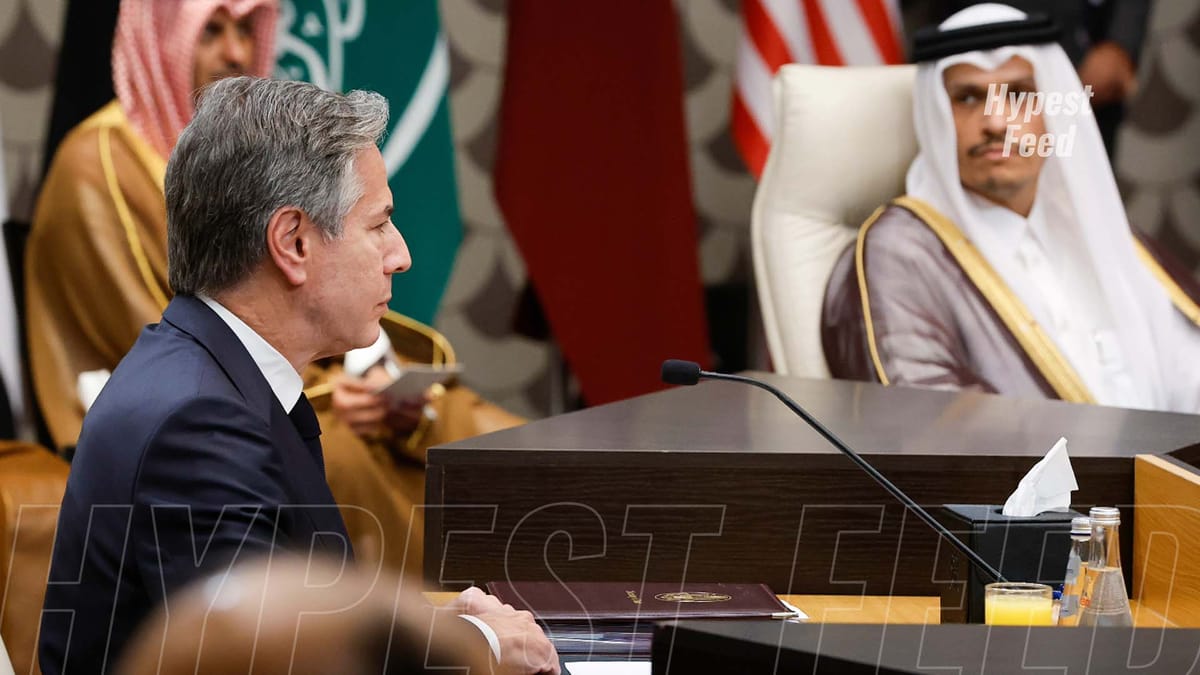The recent announcement from Qatar regarding a potential reconsideration of its role as the primary mediator between Israel and Hamas is seen as a response to criticism of its ties to the Palestinian militant group. Prime Minister and Minister of Foreign Affairs Sheikh Mohammed bin Abdulrahman Al Thani expressed frustration over the misuse of Qatar's mediation efforts for "narrow political interests" by some involved parties. He emphasized the need for a comprehensive evaluation of Qatar's mediation role, acknowledging the limits to its constructive participation in the negotiations, despite the sensitive nature of the hostage-ceasefire talks.
Despite this announcement, analysts suggest that Qatar is unlikely to completely withdraw from the talks. As a close ally of the United States, Qatar has been collaborating with Washington and Egypt to facilitate the release of over 100 Israeli hostages in Gaza and to bring an end to the conflict in the region.
Qatar faces criticism from Israel and US Congress allies, accused of close ties with Hamas and stalling negotiations. Despite pushback, Qatar's unique position as a mediator, with its ties to Hamas and alliance with the US, makes it pivotal. Hosting Hamas' political office alongside a US military base, Qatar is unlikely to relinquish its mediation role, although it faces scrutiny from US politicians. While some doubt Qatar's intentions, others believe its prominence in negotiations remains crucial. Qatar's relationship with Hamas dates back to 2012, following conflicts with Arab neighbors during the Arab Spring.
Qatar lashes out at American and Israeli politicians, accusing them of exploiting the conflict for domestic political gains. Prime Minister Sheikh Mohammed bin Abdulrahman Al Thani denounces the "unacceptable" behavior, highlighting damaging statements made behind closed doors. Israel has long questioned Qatar's role in mediation efforts, with Prime Minister Benjamin Netanyahu's leaked audio suggesting concerns. Qatar condemns Netanyahu's remarks as obstructive. Additionally, Republican Congressman James Comer alleges Qatar's financial support for Hamas in a letter to Attorney General Merrick Garland.
Qatar's embassy in Washington DC swiftly refuted claims of paying Hamas, denouncing such "misinformation" as detrimental to ongoing negotiations. Democratic Congressman Steny Hoyer accused Qatar of impeding progress in the talks. Analysts note the significance of the criticism from certain American politicians, as many in Washington recognize the value of Qatar's relationship with Hamas. President Joe Biden previously thanked Qatar for its role in facilitating a humanitarian pause, demonstrating the importance of Qatar as a close ally to the US in the Gulf region. Despite controversies, including aid to Hamas-governed Gaza, Qatar has maintained its strategic ties with Israel, even securing approval from Prime Minister Benjamin Netanyahu. The Qatari prime minister's contemplation of the country's role in the talks is viewed as a response to mounting criticism, emphasizing Qatar's frustration with the situation.



Member discussion: